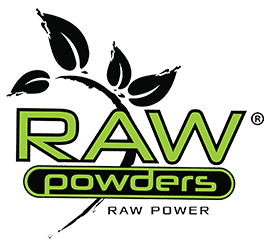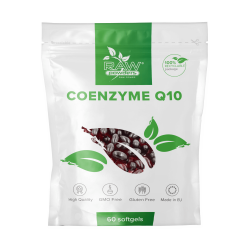ARE THERE ANY SIDE EFFECTS FROM TAKING CHOLINE?


The nutrient choline has a particularly health-promoting benefits - functioning metabolism, maintenance and regeneration of cognitive performance through to the treatment of liver damage and much more.
But are there also disadvantages? Can side effects occur when taking Alpha GPC or choline?
In the current blog, we will show what you should know when taking choline and how to behave correctly in the event of choline side effects.
What do you have to consider when taking choline?
Since choline is produced naturally by the body and is also essential for a healthy metabolism, taking supplemental choline supplements is also generally considered safe. At least as long as you stick to the recommended choline dosages and there are no particular previous illnesses.
According to current studies, choline and alpha GPC are considered to be very well-tolerated and have few side effects up to a daily dose of around 3.5 g. It is important not to exceed this amount, because side effects are to be expected, especially with high dosages. Higher doses may therefore only be taken after a doctor's prescription.
You can buy choline on the Internet, from online pharmacies, or specialized suppliers of dietary supplements and have it delivered to your home.
Choline intake for beginners
It is easiest to dose choline in tablet or capsule form. These are usually available with 250mg of choline each. For beginners, one should start with the lowest dosage. If the intake does not evoke an unwanted reaction, increase the daily dose if necessary. When using choline powder, you can adjust the dosage more individually, but there is a greater risk of overdose, especially for beginners than with the capsules.
Choline in pregnancy and choline for children:
According to the US Institute of Medicine, the daily requirement of choline for pregnant and breastfeeding women is around 550 mg/day. Because choline plays a central role in the development of the brain structure in the fetus.
Children and infants also need the vital substance for their development, infants up to 6 months about 125mg/day.
If possible, it should always be taken naturally, through diet. However, if the supply is insufficient, or if this is recommended after consultation with doctors, choline is also recommended as a dietary supplement for expectant mothers and children. In these cases, the appropriate dosage is determined by the physicians.
Do Choline and Alpha GPC Have Side Effects?
While side effects from taking choline are rare (in healthy adults) as long as dosage recommendations are followed, they can occur. We have compiled the most important ones.
Generally possible side effects:
- Diarrhea/gastrointestinal problems
- Loss of appetite
- Sweat
- Skin rash
- Heartburn
Side effects in case of previous illnesses:
With certain diseases, taking choline even in small amounts carries an increased risk of side effects. In addition, interactions with other medications could also occur in risk groups. In this case, you should consult a therapist and doctor before taking it and adjust the individual dosage if necessary. These include the following diseases:
- Liver diseases
- Kidney disease
- Depression
- Alcohol/drug addiction
Overdose side effects (above 10g/day):
- A headache
- Vomiting
- Diarrhea
- Drowsiness
- Dizziness
- Concentration problems
- Heavy sweating
- Falling blood pressure
- Fishy body odour
- Insomnia
Choline side effects in allergies:
As with almost all medications, allergic reactions to choline are possible, although very rare. For this reason, it is important to keep the first intake particularly low in order to check the individual tolerance of choline with this initial dose. Allergic reactions are usually characterized by itching, a rash or swelling. Breathing difficulties are also possible. Since this is often a medical emergency, you should call emergency services and medical attention immediately.
How should I react to choline side effects?
If slight side effects are felt at the beginning of the intake, they should return to normal within a few days.
In the event of an overdose or persistent, severe side effects, it is recommended to stop taking it, do not hesitate and seek medical attention. Allergic reactions to choline supplements, while rare, are possible. Since this is a medical emergency, call emergency services immediately.
People with previous illnesses are advised to discuss the intake with doctors in advance to rule out possible interactions with other medications.
Is Choline a Safe Supplement?
Choline is very important for the body's metabolism and the central nervous system. The benefits of choline[3] are multifaceted and the nutrient is partly absorbed through food. There is a lot of choline in beef liver, eggs, meat and fish in particular. Less in vegetables, fruits or grains, which means that people who eat vegetarian or vegan diets are often deficient in choline. Sunflower seeds, walnuts or peanut butter would be particularly recommended here. In order to cover the demand for choline (according to the European Food Safety Authority about 400-550 mg/day), however, the additional intake of choline as a dietary supplement is often necessary.
Pregnant women often need a higher supply, since choline is involved in the early brain development of the fetus, but also as a neurotransmitter, for building cell membranes and much more. The exact dosage should be discussed with the doctor in advance, as each person has different needs.
Sources:
https://www.cholin-wissen.de/cholin-nebenwirkungen-wechselwirkungen/
https://www.ncbi.nlm.nih.gov/books/NBK114310/
https://www.naturalis-bio.de/alpha-gpc/
https://www.careelite.de/cholin-vitamin-b4/
https://www.natur-kompendium.com/cholin/





_front%20(1)-250x250.png)



_front%20(1)-250x250.png)

-(NN)_front%20(1)-min-250x250.png)

_front%20(1)-250x250.png)


_front%20(1)-min-250x250.png)
_front%20(1)%20(1)-250x250.png)
_front%20(1)-250x250.png)








_front%20(1)-min-250x250.png)
_front%20(1)%20(1)-250x250.png)
-min-250x250.png)
-min-250x250.png)
